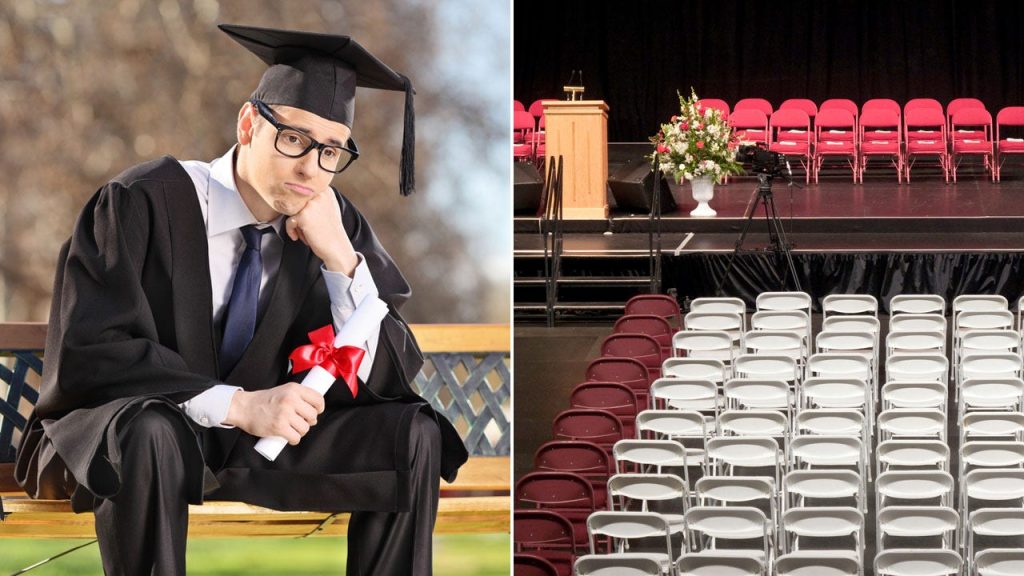Four years after the pandemic disrupted traditional high school graduation ceremonies, some college graduates are facing a similar disappointment due to ongoing political protests. Columbia University and the University of Southern California have both announced the cancellation of their 2024 commencement ceremonies. The University of Michigan also experienced disruptions during their ceremony due to anti-Israel protestors. Psychologist Zachary Ginder highlighted the impact of these disruptions on graduates and their families, leading to feelings of disappointment, anger, depression, and anxiety as graduates prepare to enter the real world.
One significant consequence of missing out on traditional graduation ceremonies is the experience of ‘milestone FOMO’ or the fear of missing out on significant life events or milestones. Therapist Nicholette Leanza explained that milestone FOMO can lead to a reduced sense of accomplishment for graduates who miss out on celebrating their hard work and achievements at a formal ceremony. Graduation ceremonies serve as a recognition of years of dedication and hard work, symbolizing a pivotal transition into adulthood for many individuals. The absence of these ceremonies can result in feelings of grief, loss, sadness, and incompleteness for graduates.
In response to the emotional impact of missing out on graduation ceremonies, experts offer suggestions for graduates grappling with disappointment. One strategy is to focus on acknowledging and accepting emotions such as sadness, anger, and disappointment, while also reflecting on the positive aspects of their college experience. Graduates are encouraged to challenge negative thoughts and reframe them into more balanced perspectives. Creating a personal graduation ceremony with close friends and family, visiting the campus, and focusing on accomplishments can help graduates process their emotions and find closure.
Parents and loved ones can play a crucial role in supporting graduates through this challenging time. Encouraging graduates to express their feelings, offering validation and support, and helping them plan their next steps can be beneficial. It is important for family members to acknowledge the significance of the loss for graduates and find alternative ways to celebrate and recognize their achievements. In cases where graduates are struggling to cope with the disappointment of missing out on graduation ceremonies, seeking professional help from a licensed clinician may be advisable.
Ultimately, while missing out on traditional graduation ceremonies can be a source of disappointment and grief for many graduates, there are ways to process and overcome these emotions. By acknowledging and accepting their feelings, challenging negative thoughts, creating personal celebrations, and focusing on their accomplishments, graduates can find closure and move forward. With support from loved ones and professionals, graduates can navigate this challenging time and transition successfully into the next phase of their lives.


